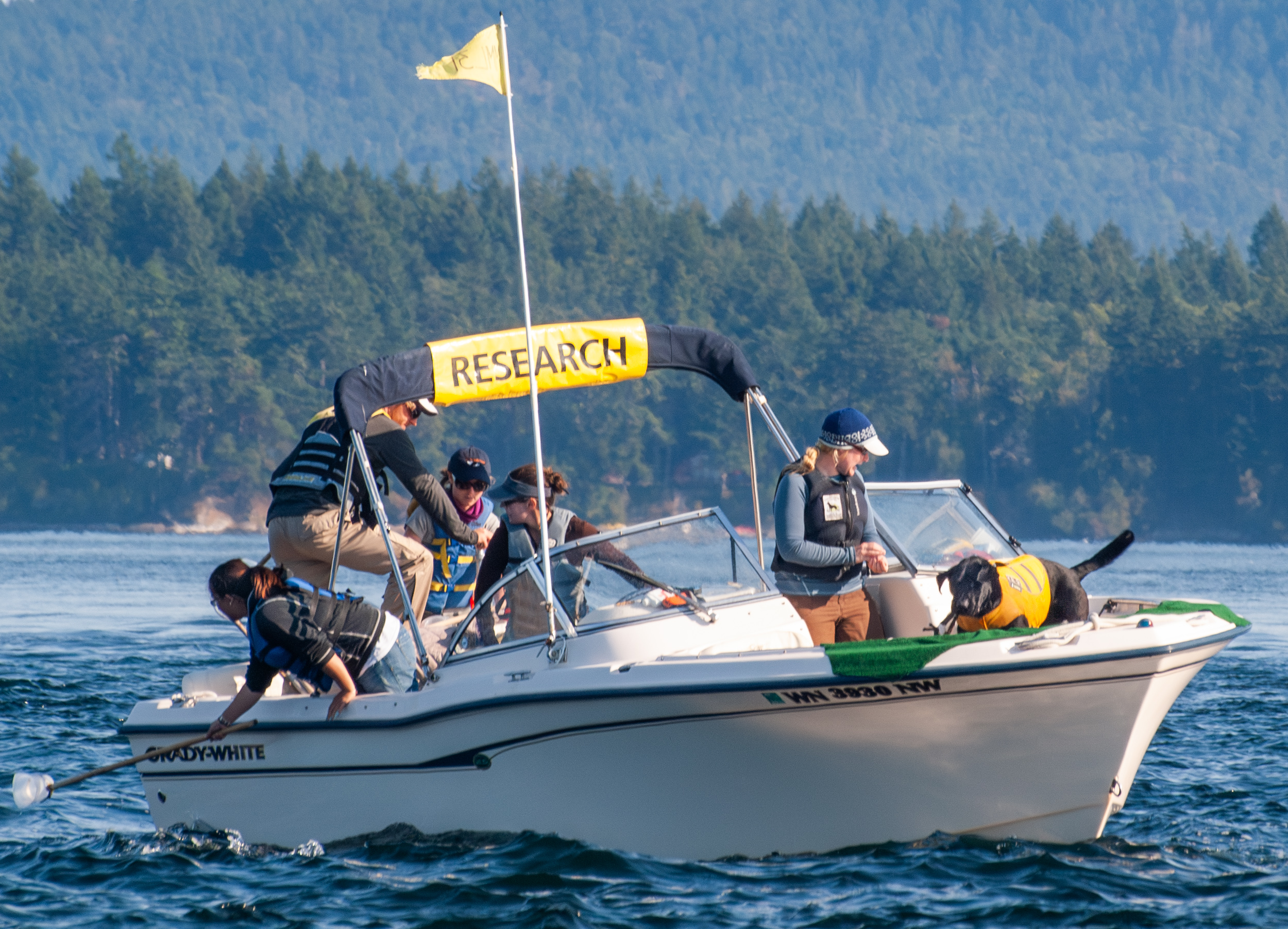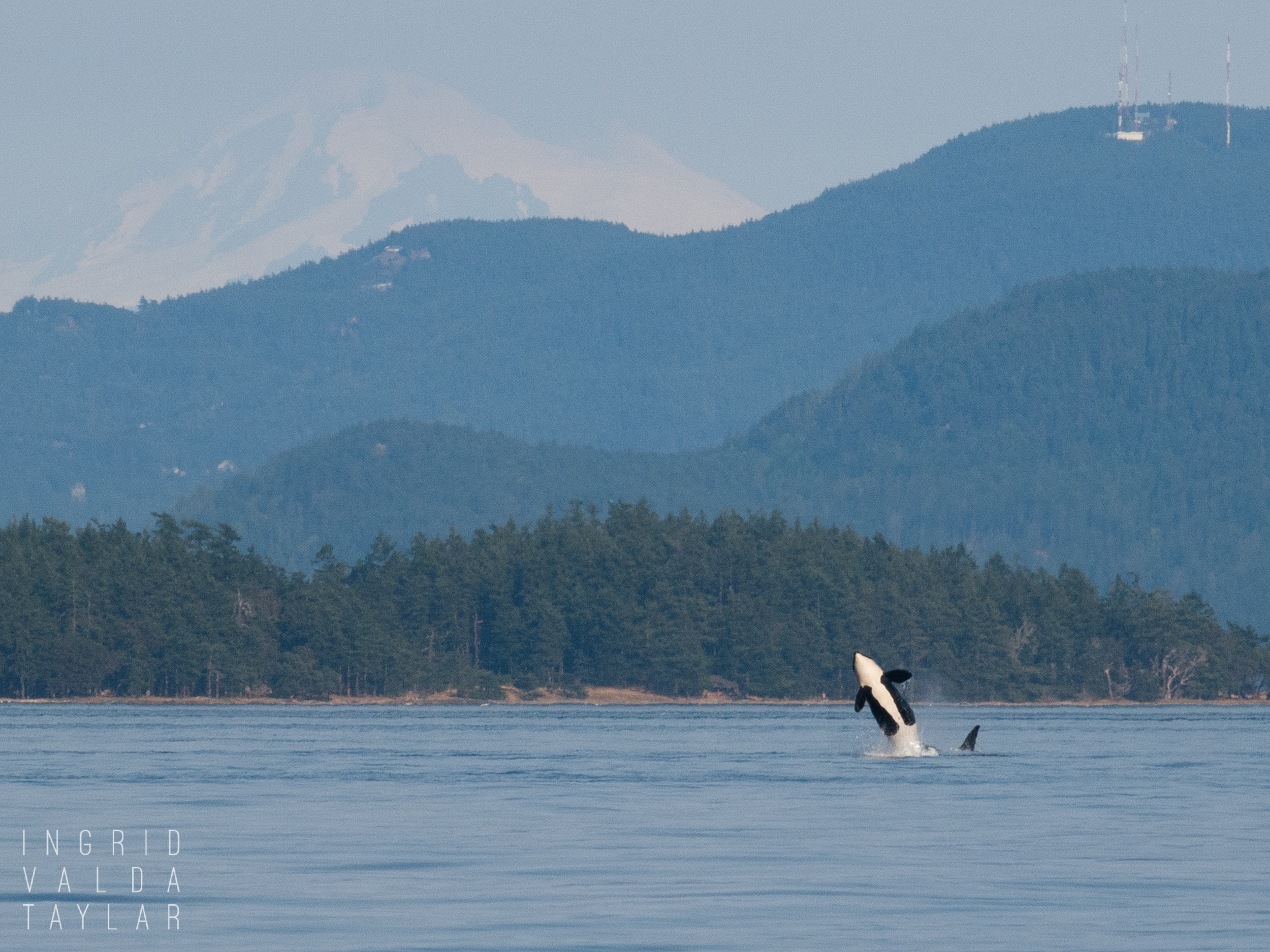
Tucker isn’t really interested in the water. But, he spends his working days on a boat, sniffing out orca scat in the breezes of the Salish Sea. He’s a labrador mix, trained as part of the Conservation Canine program — at the University of Washington’s Center For Conservation Biology. Tucker’s ambivalence about water actually makes him the perfect dog for this job, since he’s a lot more valuable on board than he would be splashing around the Strait of Juan de Fuca.
Conservation Canines like Tucker enable scientists to collect samples in a noninvasive manner. Researchers are trying to establish why the resident orca populations in the Northwest are declining. There are three primary hypotheses: 1) high levels of toxicants; 2) decline in primary food supply (Chinook salmon): and 3) disturbance from human vessels.
The collected scat samples are tested for hormones, toxicants and other important markers of orca health. The center’s website describes the scat-collection methodology in more detail. But, the gist of it is — Tucker and his handler use wind direction in relation to orca location, to detect the samples orcas leave in the water. Once Tucker finds the scat, the researchers scoop it up, and Tucker is rewarded with a game of tug-of-war with his favorite toy. We came upon Tucker’s research boat just as he was getting his play treat.

Tucker is not the only Conservation Canine on staff. He just happens to be an orca-scat expert — so he’s the dog we saw during our first day out with the resident orcas around San Juan Island and Vancouver Island. According to this 2008 article in The Province, Tucker was rejected first as a pet dog, and then as a police dog. Now, he’s part of an esteemed team of dogs who were all rescued from shelters and given a second chance at life as valuable members of wildlife research teams.
The dogs are chosen for their obsessive and high-energy personalities which translate well into tracking skills. At the website, you can see biographies on all of the dogs as well as their areas of expertise. Tucker, for instance, was trained on wolverine, wolf, moose, caribou, and orca.
Here are a few more details and articles about Conservation Canines, and the research projects where they’re employed:
- Conservation Canines: Overview
- Conservation Canines: FAQ
- Dogs With Nose For Scat Answer Call of Nature (SF Chronicle)
- Whales, Dogs, Poop & Conservation Biology (Companion Animal Solutions)
:: Related: If Orcas Could Buy Sofas …
The Salish Sea
The resident pods of orcas spend a lot of time in the areas around the Strait of Juan de Fuca and the Strait of Georgia. You can see that area on this beautifully-rendered map of the Salish Sea.
Map of the Salish Sea & Surrounding Basin, Stefan Freelan, WWU, 2009

[…] It was in the same area where University of Washington researchers were conducting their Orca scat tests with Tucker the scat-sniffing dog (photo in the linked post). There’s power and poignance in […]
I had no idea they used dogs for this purpose. Blimey, I didn’t even know they collected their scat.. Incredibly interesting, Ingrid.